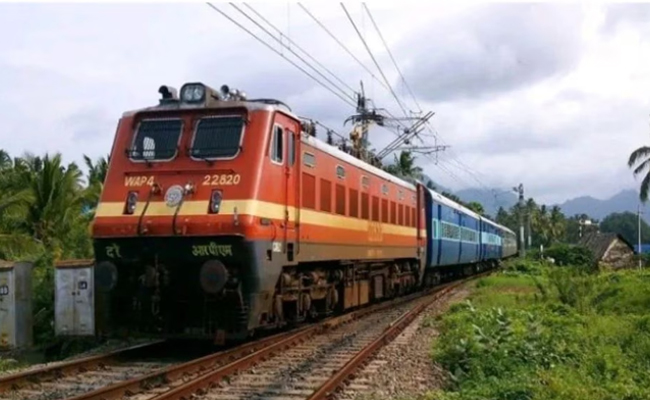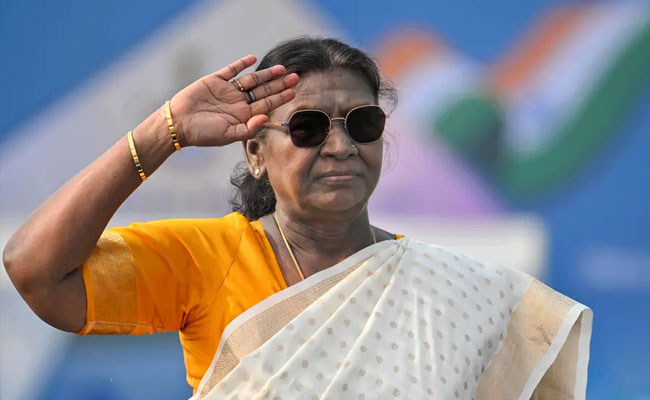Wellington (AP) Renagi Ravu was meeting with two colleagues at his home in the Papua New Guinea highlands Sunday morning when a huge magnitude 7.6 earthquake struck.
Ravu tried to stand up from his chair but couldn't maintain his balance and ended up in a kind of group hug with his colleagues, while plates and cups crashed from his shelves to the ground. His children, ages 9 and 2, had their drinks and breakfast spill over.
Ravu, who is a geologist, said he tried to calm everybody as the shaking continued for more than a minute.
The extent of the damage and whether there have been serious injuries or deaths from the quake was not clear in the immediate aftermath in the remote and underdeveloped region.
Ravu said that about 10,000 people live in and around his town of Kainantu, which is located 66 km (41 miles) from the quake's epicentre and was the nearest big town to the quake. He said there are many scattered settlements in the highlands, and tens of thousands of people might have been affected.
He said people were feeling rattled.
It's a common thing that earthquakes are felt here, but it usually doesn't last as long and is not as violent as this one, Ravu said. It was quite intense.
On Sunday morning, Ravu was still sorting through the damage to his home, which he said likely included a broken sewer pipe judging from the smell. He said friends elsewhere in Kainantu had messaged him with descriptions of cracked roads, broken pipes and fallen debris, but hadn't described major building collapses or injuries.
They are starting to clean up their houses and the streets, he said. Communication seems to have been affected, he added, with some cell towers likely to have fallen.
A magnitude 7.5 earthquake in 2018 in the nation's central region killed at least 125 people. That quake hit areas that are remote and undeveloped, and assessments about the scale of the damage and injuries were slow to filter out.
Felix Taranu, a seismologist at the Geophysical Observatory in the capital Port Moresby, said it was too early to know the impacts of Sunday's earthquake, although its strength meant it most likely caused considerable damage .
According to the US Geological Survey, the quake hit at 9:46 am local time at a depth of 90 km (56 miles).
NOAA has since advised there is no tsunami threat for the area.
Papua New Guinea is located on the eastern half of the island of New Guinea, to the east of Indonesia and north of eastern Australia.
It sits on the Pacific's Ring of Fire, the arc of seismic faults around the Pacific Ocean where much of the world's earthquakes and volcanic activity occurs. (AP)
Let the Truth be known. If you read VB and like VB, please be a VB Supporter and Help us deliver the Truth to one and all.
Agartala (PTI): Tripura Transport Minister Sushanta Chowdhury has thanked Prime Minister Narendra Modi and Railways Minister Ashwani Vaishnaw for clearing the final location survey (FLS) for a new rail line between Jirania and Bodhjungnagar industrial estate in West Tripura.
The Ministry of Railways has accorded sanction for conducting an FLS for the construction of a new line, the NFR said in a statement on Monday.
The estimated cost of the 14-km stretch will be Rs 42 lakh, and the approval marks an important step toward strengthening railway infrastructure and enhancing industrial activities in the northeastern state, it said.
"The approval for the construction of this new railway line is an important step in strengthening the railway infrastructure in the state and increasing the mobility of various industries in the industrial city of Bodhjungnagar," the transport minister said in a Facebook post on Monday.
"The proposed new Jirania-Bodhjungnagar railway line, if commissioned, will play an important role as a rail corridor for the transport of goods from the industrial city of Bodhjungnagar and which will benefit the people of the state, including businessmen," he added.
After the completion of this survey, the construction of the new railway line will help encourage further industrial development in the districts adjoining West Tripura, which will significantly boost the local economy, he said.
"This important project will play a special role in improving the railway connectivity in the state and boost the economic growth of the region," the minister added.
"I express my heartfelt gratitude to Prime Minister Narendra Modi, Chief Minister Manik Saha and Railway Minister Ashwini Vaishnaw for taking this step," he added.

_vb_85.gif)



_vb_22.jpeg)